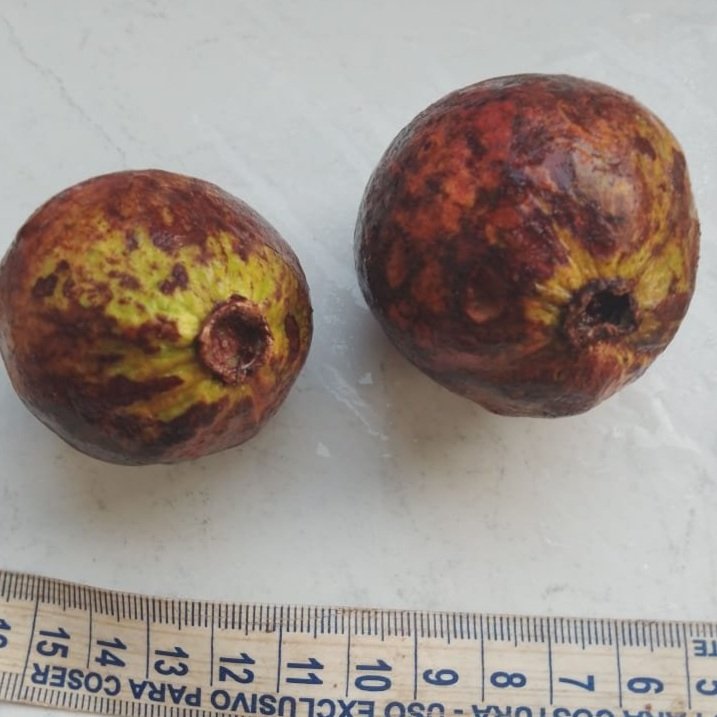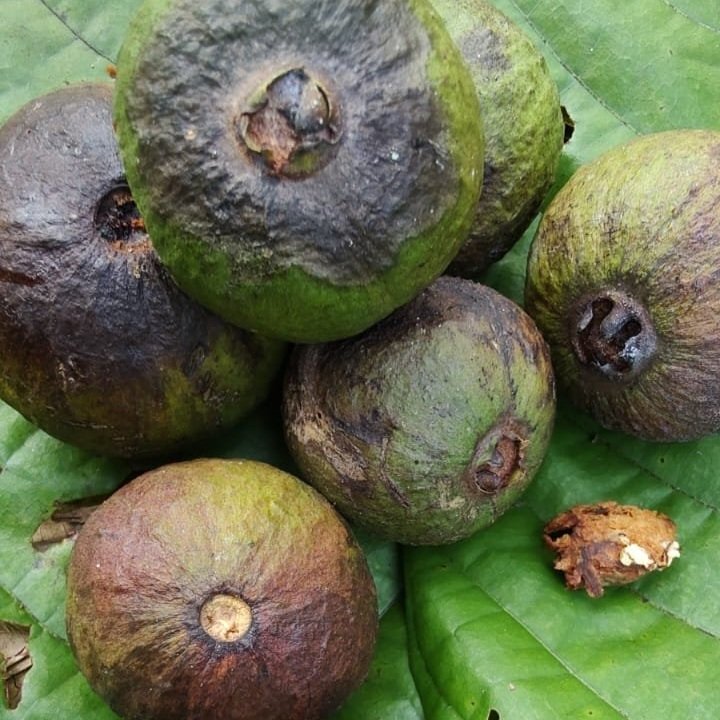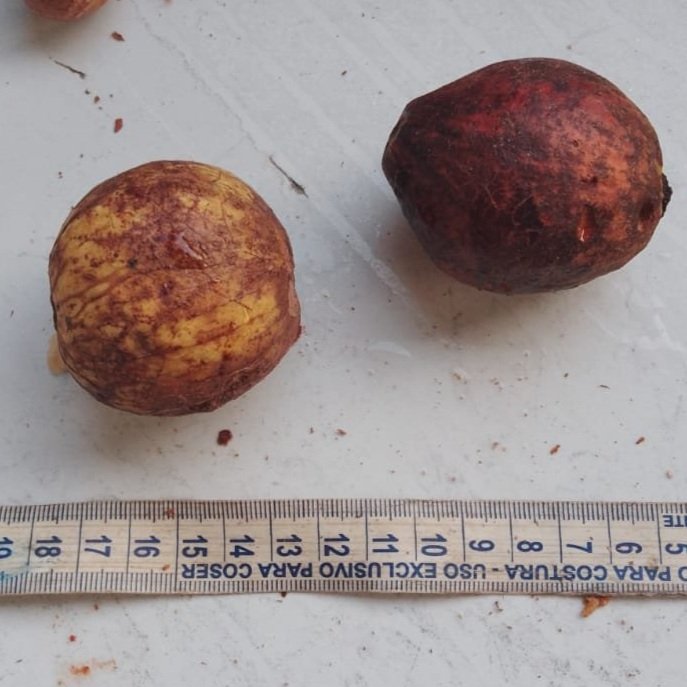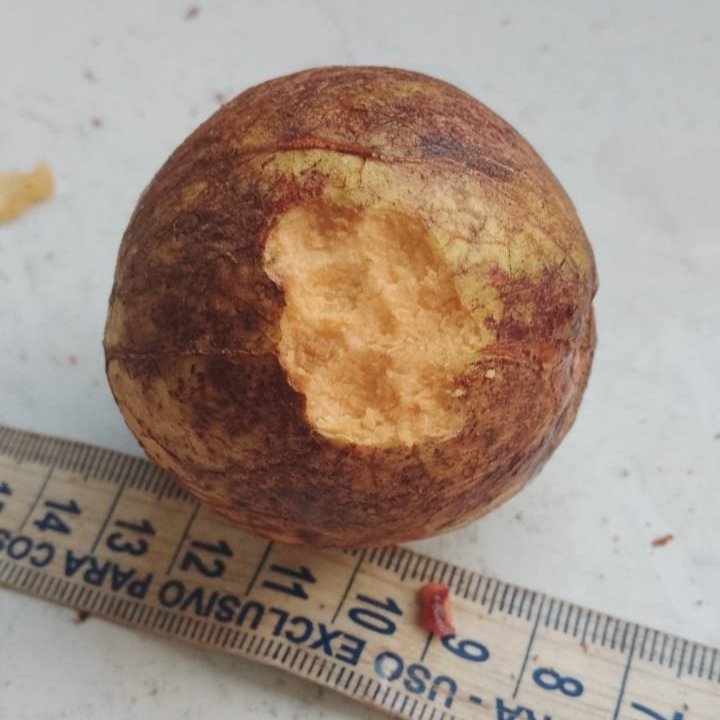Eugenia Altissima
Seeds were imported from Brazil and are very rare and limited. A tree approximately 18 meters tall, producing fruits with sweet pulp and a guava-like aroma. The fruits have an amazing taste, and the skin, while slightly astringent, is easily peeled away from the pulp. Each fruit contains a single seed, slightly smaller than a golf ball. Despite the seed size, more than 50% of the fruit is pulp. A very rare find. Found in Una, Bahia. Una, Bahia, experiences a tropical climate with warm temperatures and high humidity throughout the year. It corresponds to USDA Hardiness Zones 10-11, with average minimum temperatures between 30°F and 40°F (-1°C to 4°C), comparable to regions like southern Florida and Hawaii. Seeds are shipped in humid vermiculite.
Seeds were imported from Brazil and are very rare and limited. A tree approximately 18 meters tall, producing fruits with sweet pulp and a guava-like aroma. The fruits have an amazing taste, and the skin, while slightly astringent, is easily peeled away from the pulp. Each fruit contains a single seed, slightly smaller than a golf ball. Despite the seed size, more than 50% of the fruit is pulp. A very rare find. Found in Una, Bahia. Una, Bahia, experiences a tropical climate with warm temperatures and high humidity throughout the year. It corresponds to USDA Hardiness Zones 10-11, with average minimum temperatures between 30°F and 40°F (-1°C to 4°C), comparable to regions like southern Florida and Hawaii. Seeds are shipped in humid vermiculite.
Seeds were imported from Brazil and are very rare and limited. A tree approximately 18 meters tall, producing fruits with sweet pulp and a guava-like aroma. The fruits have an amazing taste, and the skin, while slightly astringent, is easily peeled away from the pulp. Each fruit contains a single seed, slightly smaller than a golf ball. Despite the seed size, more than 50% of the fruit is pulp. A very rare find. Found in Una, Bahia. Una, Bahia, experiences a tropical climate with warm temperatures and high humidity throughout the year. It corresponds to USDA Hardiness Zones 10-11, with average minimum temperatures between 30°F and 40°F (-1°C to 4°C), comparable to regions like southern Florida and Hawaii. Seeds are shipped in humid vermiculite.






